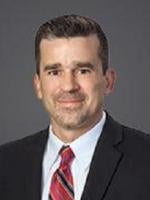Following up on its recent temporary enforcement guidance permitting suspension of N95 annual fit-testing for healthcare employers, on April 3, 2020, the Occupational Safety and Health Administration (OSHA) issued an interim Enforcement Guidance for Respiratory Protection and the N95 Shortage Due to the Coronavirus Disease 2019 (COVID-19) Pandemic. The new guidance supplements, but does not replace, the previous guidance. The guidance takes effect immediately and remains in effect until further notice.
The enforcement guidance addresses the N95 mask shortage in the United States by relaxing the ability to extend the use of, and reuse, N95 respirators. In addition, except for certain healthcare providers referenced below, the enforcement guidance condones the use of expired N95 respirators under certain circumstances during the COVID-19 pandemic. Specifically, the enforcement guidance provides:
-
“[T]he same worker is permitted to extend use of or reuse the respirator, as long as the respirator maintains its structural and functional integrity and the filter material is not physically damaged, soiled, or contaminated (e.g., with blood, oil, paint).” Note: In the healthcare setting, the U.S. Centers for Disease Control and Prevention (CDC) has issued specific guidance on the decontamination and reuse of filtering facepiece respirators.
-
“Extended use is preferred over reuse due to contact transmission risk associated with donning/doffing during reuse.” Note: “Extended use” and “reuse” are concepts primarily deployed in healthcare settings, such as in accordance with specific guidance for the extended use of N95 respirators from the CDC.
-
OSHA recommends that users perform a seal check each time they don a respirator and discontinue use of the respirator if the seal check is not successful.
-
OSHA advises employers to train workers to discard respirators if their structural or functional integrity is compromised.
-
“[A]n appropriate sequence for donning/doffing procedures should be used . . . and training needs to address appropriate donning/doffing procedures.”
-
Where N95 respirators are not available and after making a good faith effort to acquire in-date respirators or use other alternatives, OSHA advises employers (other than healthcare employers mentioned below) to use expired N95 respirators. Employers should notify workers that the respirators are expired.
-
“Employers may use only previously NIOSH-certified expired N95” respirators.
-
For healthcare employers, OSHA states that expired N95 respirators “generally must not be used” for providers performing surgical procedures on “patients infected with, or potentially infected with” COVID-19 or “procedures expected to generate aerosols or procedures where respiratory secretions are likely to be poorly controlled.”
OSHA indicates it permits these measures as a last resort, and OSHA encourages employers to “reassess their engineering controls, work practices, and administrative controls to identify any changes they can make to decrease the need for N95 respirators.” The agency also urges employers to consider using alternative classes of filtering facepiece respirators, such as N99, N100, R95, R99, R100, P95, P99, and P100 masks. OSHA indicates it otherwise expects employers to comply with all other provisions of its respiratory protection standard, including fit testing and medical evaluation requirements.
Key Takeaways
The enforcement guidance provides some relief for employers with workers where respirators are required, or are being permitted by the employer, about the hot-button issues of extended use and reuse of N95 respirators and expired N95 respirators. But other questions remain. For instance, many employers are asking the agency to relax or suspend fit testing requirements, which often require fit-tested respirators to be disposed after testing. Other employers are requesting OSHA to suspend medical evaluation requirements, as the healthcare industry is currently overwhelmed responding to the COVID-19 pandemic. The enforcement guidance does not address those pressing issues. We anticipate, however, that OSHA may issue additional guidance on these topics in the near future.






 />i
/>i

